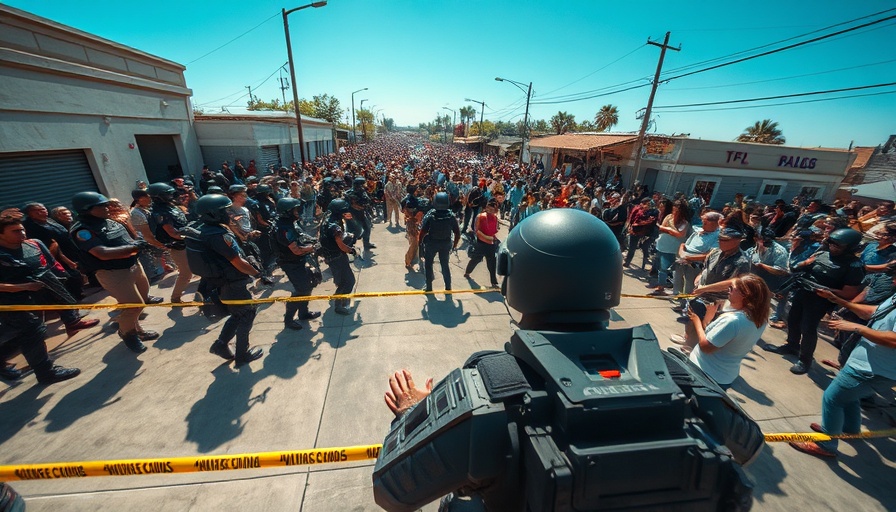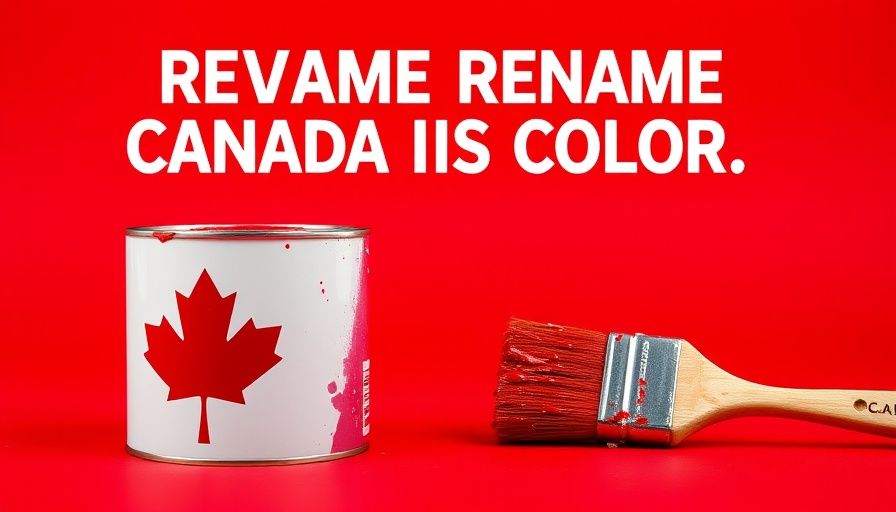
A Bold Move: Understanding Trump’s Tariff Stance on Brazil
In a surprising announcement, National Economic Council Director Kevin Hassett defended President Donald Trump’s decision to impose a staggering 50% tariff against Brazil, the U.S.'s second-largest trading partner. This move comes despite the U.S. enjoying a trade surplus with Brazil, raising critical questions about the administration's strategy and priorities. Hassett insists that this tariff is an essential part of a broader goal to onshore production to mitigate risks posed by national security concerns.
The Rationale: National Security or Political Strategy?
While Hassett underlined national security as the primary justification for the tariffs, he faced tough questions regarding the actual security threat presented by Brazil, particularly in relation to an ongoing criminal case against former leftist president Jair Bolsonaro—a close ally of Trump. When questioned about the rationale, Hassett responded, "If you don’t have an overall strategy for this, then there’ll be transshipping and everything else, and you won’t achieve your objectives.” This statement hints at a convoluted approach that might mix economic strategy with political maneuvering.
Trade Dynamics: Tariffs Amid Surplus
The irony is palpable as the U.S. maintains a trade surplus with Brazil while enforcing such punitive measures. Critics have expressed concern over this inconsistency, questioning the effectiveness and logic behind implementing tariffs on a country that is not only an ally but also contributes positively to the U.S. trade balance. Jonathan Karl pointed this out during the interview, emphasizing that the rationale for the tariffs needs deeper scrutiny, especially given the current economic climate.
Potential Consequences: What Do Tariffs Mean for American Households?
For the average American consumer, tariffs could lead to increased prices on goods and services imported from Brazil. Items ranging from agricultural products to electronics might see a price hike, affecting family budgets and household spending. In a time when many families are already feeling the pinch from inflation and high living costs, these tariffs could exacerbate financial strain. Understanding the implications of these tariffs is essential for U.S. citizens who might face the brunt of this economic decision.
Parallels in International Trade: Looking Beyond Brazil
Trump's tariffs on Brazil are part of a larger trend of increasing trade tensions globally. With similar tariffs imposed on Canada and Mexico earlier, it raises the question of whether the U.S. is entering a new era of protectionism, one that could isolate it from beneficial trade relationships. Countries like Europe and China are closely monitoring these developments, knowing that retaliatory measures could be imminent, further complicating international trade.
A Changing Landscape: The Road Ahead
As the international community reacts to these tariffs, the outlook remains uncertain. The future of global trade with Brazil—and beyond—hinges on the ability of leaders to navigate these complex waters wisely. Policy changes and their repercussions will require careful attention, as decisions today will undoubtedly affect the economic landscape tomorrow.
For concerned parents, homeowners, and taxpayers, it’s important to stay informed and consider the wider economic implications of tariffs like these, as they can influence everyday expenses and ultimately impact one’s quality of life. The ongoing situation warrants a careful watch—even beyond the headlines—and speaks to larger trends in global trade policy.As the dialogue around tariffs and trade continues, engaging in conversations about these topics is vital. Ensure you’re part of the discourse by discussing how trade policies might affect your community and family directly.
 Add Row
Add Row  Add
Add 




 Add Row
Add Row  Add
Add 

Write A Comment